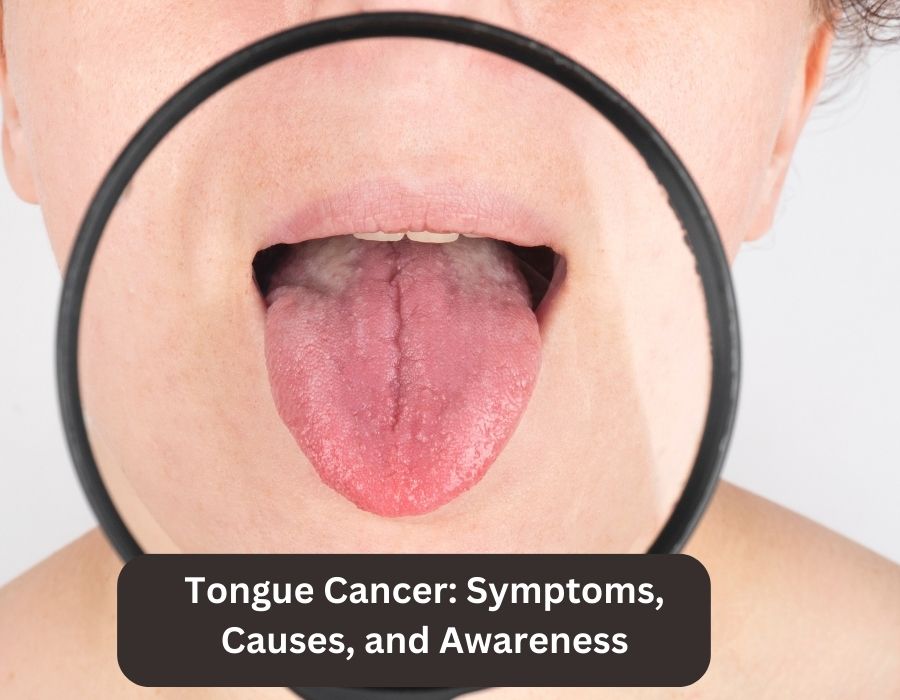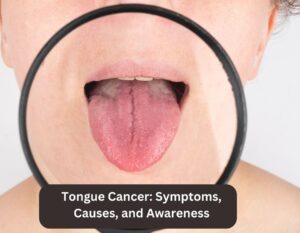
Introduction to Tongue Cancer
Tongue cancer, a subset of oral cancer, is a formidable opponent in the realm of health challenges. While it may not receive as much attention as some other forms of cancer, its impact on patients and their families can be profound. The good news is that with advancements in medical science, increased awareness, and proactive measures, we can make significant strides in overcoming tongue cancer. The role of medical oncologists in Mumbai become very crucial in the treatment of tongue cancer. It can occur on the front two-thirds of the tongue (oral tongue) or the base of the tongue. The most common type is squamous cell carcinoma, which begins in the thin, flat cells lining the surface of the tongue.

Symptoms of Tongue Cancer
One of the most crucial factors in successfully overcoming tongue cancer is early detection. When caught in its early stages, tongue cancer is often highly treatable. Regular self-examinations and dental check-ups can play a vital role in identifying potential issues before they progress.
Signs and symptoms to watch for include:
- Persistent sores or lumps on the tongue
- Red or white patches on the tongue
- Pain or difficulty swallowing
- Unexplained bleeding from the tongue
- Chronic sore throat or hoarseness
- Numbness in the mouth
If any of these symptoms persist for more than two weeks, it’s essential to consult a healthcare professional promptly.
Advancements in Diagnosis and Treatment
Medical advancements have significantly improved our ability to diagnose and treat tongue cancer effectively. Some of the current diagnostic tools and treatment options include:
- Advanced imaging techniques: MRI, CT scans, and PET scans can provide detailed images of the tongue and surrounding tissues.
- Biopsy: A small sample of tissue is examined under a microscope to confirm the presence of cancer cells.
- Surgery: Depending on the stage and location of the cancer, various surgical techniques can be employed to remove the tumour.
- Radiation therapy: High-energy beams are used to kill cancer cells and shrink tumours.
- Chemotherapy: Powerful drugs are used to kill cancer cells throughout the body.
- Targeted therapy: Drugs that specifically target cancer cells while minimizing damage to healthy cells.
- Immunotherapy: This approach harnesses the body’s immune system to fight cancer cells.
Multidisciplinary Approach to Treatment
Overcoming tongue cancer often requires a multidisciplinary approach. A team of specialists, including oncologists, surgeons, radiation oncologists, speech therapists, and nutritionists, work together to provide comprehensive care. This holistic approach not only targets the cancer itself but also addresses the various challenges patients face during and after treatment. The journey to overcoming tongue cancer doesn’t end with successful treatment. Rehabilitation plays a crucial role in helping patients regain function and quality of life. This may include:
- Speech therapy to address changes in speech and swallowing
- Nutritional counselling to ensure proper diet during and after treatment
- Psychological support to cope with the emotional impact of cancer
- Physical therapy to address any physical limitations resulting from treatment
Research and Future Prospects
Ongoing research continues to pave the way for more effective treatments and improved outcomes for tongue cancer patients. Some promising areas of research include:
- Immunotherapy advancements: Developing more targeted and effective immunotherapies.
- Personalized medicine: Tailoring treatments based on the genetic profile of the cancer.
- Minimally invasive surgical techniques: Reducing the impact of surgery on patients.
- Combination therapies: Finding the most effective combinations of existing treatments.
- Early detection methods: Developing more accurate and accessible screening tools.
Risk Factors and Prevention
One of the most effective ways to overcome tongue cancer is to prevent it from occurring in the first place. While not all cases can be prevented, understanding and mitigating risk factors can significantly reduce the likelihood of developing this disease. Key risk factors include:
- Tobacco use: Smoking or chewing tobacco is a major risk factor.
- Excessive alcohol consumption: Heavy drinking, especially when combined with tobacco use, increases risk.
- Human papillomavirus (HPV) infection: Certain strains of HPV can increase the risk of tongue cancer.
- Poor oral hygiene: Neglecting oral health can contribute to the development of cancerous cells.
- Age and gender: Tongue cancer is more common in men over 50.
Prevention strategies include:
- Quitting tobacco use
- Limiting alcohol consumption
- Practicing good oral hygiene
- Getting vaccinated against HPV
- Eating a balanced diet rich in fruits and vegetables
Support for Patients and Families
Overcoming tongue cancer is not just a medical challenge but also an emotional and social one. Support groups, counseling services, and patient advocacy organizations can provide valuable resources and emotional support for patients and their families throughout their cancer journey.
Conclusion
While tongue cancer presents significant challenges, we have many reasons to be optimistic about our ability to overcome it. Through a combination of prevention strategies, early detection, advanced treatments, comprehensive care, and ongoing research, we can continue to improve outcomes for those affected by this disease. As individuals, we can take proactive steps to reduce our risk and stay vigilant about our oral health. As a society, we can support research initiatives, raise awareness, and ensure that quality care is accessible to all those who need it.
You can also read: Banana Powder Market Share Report | Industry Trends 2024-2032